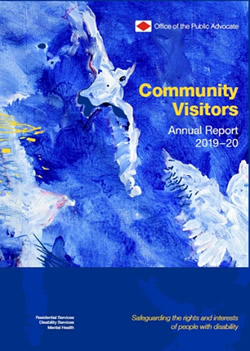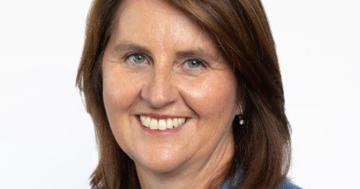 The Office of the Public Advocate (OPA) has released its Community Visitors Annual Report, calling for more accommodation options for people with complex mental illness.
The Office of the Public Advocate (OPA) has released its Community Visitors Annual Report, calling for more accommodation options for people with complex mental illness.
The Office said the Report revealed that a lack of suitable long-term accommodation options for people with complex mental illness was leading to bottlenecks in an already over-stretched hospital system.
“The Community Visitors Mental Health Board has called on the State Government to substantially increase investment in beds in acute, forensic, and community mental health settings, particularly for consumers with complex needs,” OPA said.
“There is a gross mismatch between capacity and demand for acute beds,” it said.
OPA said people in mental health distress often presented to emergency departments and one metropolitan health network advised Community Visitors that they typically had 100 per cent bed occupancy and 25-30 people awaiting admission in the three emergency departments under their management.
“For those living in rural and regional areas, a lack of mental health beds means those needing care may have to travel long distances, away from their usual support networks, to receive treatment in metropolitan hospitals,” it said.
The Office said that this year Mental Health Community Visitors reported 1,927 issues from 1,235 visits to 172 mental health units, compared with 1,486 issues from 1,670 visits to 170 units last year.
“Despite a 26 per cent reduction in the number of visits (due to COVID-19 restrictions leading to the suspension of face-to-face visits from the end of March), there was a 30 per cent increase in issues identified,” it said.
OPA also called on the State to extend the scope and funding of the Community Visitors Program to provide independent monitoring of Disability Services accommodation.
Public Advocate and Chair of the Community Visitor boards, Colleen Pearce said the National Disability Insurance Scheme (NDIS) had not yet solved the shortage of disability accommodation options.
“Even when accommodation funds are allocated in an NDIS plan, a participant may not be able to source a suitable or willing provider,” Dr Pearce said.
“In other cases, participants are having to wait months for the reassessments or plan reviews required to move into identified alternative accommodation,” she said.
Dr Pearce said for many people with disability, the right to choose where they lived and who they lived with was so constrained that they were left feeling unsafe and fearful in their own homes.
She said a quarter of the 3,175 issues identified by volunteer Community Visitors in disability group homes this year related to the appropriateness of the residential environment.
Dr Pearce said other issues identified included allegations of abuse, concerns about the quality of staff support, emotional and physical wellbeing, behavioural support, healthcare, incident reporting, and participation in the NDIS.
The OPA’s 76-page Community Visitors Annual Report can be accessed at this PS News link.











